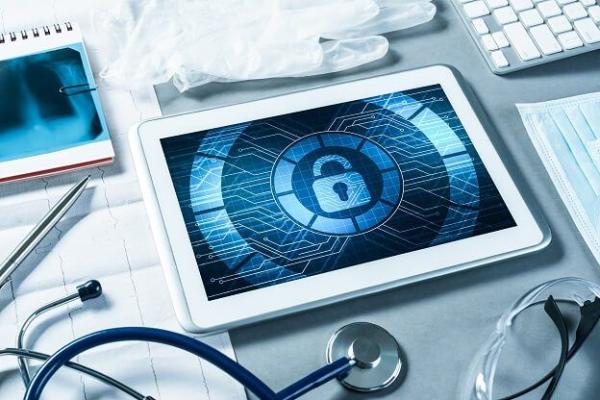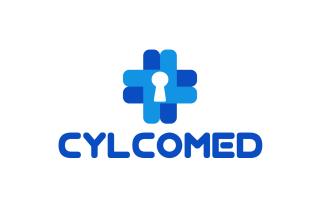
Two different pilot implementations will be conducted in CYLCOMED to test and validate the cybersecurity toolbox in different healthcare settings. The project aims to bridge technology with healthcare needs, ensuring practical, scalable, and compliant cybersecurity measures for connected medical devices.
These pilots aim to improve the cybersecurity of connected medical devices (CMDs) by evaluating the integration, effectiveness, and real-world applicability of the CYLCOMED tools. Both pilots are critical to demonstrating the effectiveness of the CYLCOMED solutions, and they lay the foundation for enhancing cybersecurity in connected medical environments.
Pilot 1: Cybersecurity in Hospital Equipment for ICU Patients
Focused on improving cybersecurity in a hospital environment, specifically in intensive care units (ICUs), it addresses the challenge of securing legacy medical devices, particularly infusion pumps, by integrating modern cybersecurity tools to mitigate risks associated with unauthorized access and data breaches.
Pilot's Key Aspects:
- Integrates security mechanisms into hospital equipment.
- Primary focus on securing infusion pumps and their associated controllers.
- Test bench platform under development to evaluate the performance, security risks, and safety of connected medical devices.
- Backend application mimicking a Hospital Information System (HIS) developed to facilitate tool integration.
Tools and Tools Providers
- LADS (Live Anomaly Detection System) for real-time network anomaly detection: EVIDEN - HPC Software Security Team.
- LOMOS (Log Monitoring System) for analyzing system and application logs: XLAB.
- LuS4MED (Self-Sovereign Identity Authentication Solution) for secure authentication and identity management: EVIDEN - Identity Management and Privacy team.
- C-OPA (CYLCOMED Open Policy Agent) for access control and security policy enforcement: MARTEL.
- FE4MED (Functional Encryption for Medical Data) for protecting, by encryption, the patient’s data coming from the Connected Medical Device: EVIDEN - Identity Management and Privacy Team.
- CYLCOMED dashboard, which will display security alerts and risk analysis in a centralized interface: EVIDEN - HPC Software Security team.
Pilot's Challenges:
- Ensuring cybersecurity integration without interfering with medical device certification.
- Setting up an automated Hardware-in-the-Loop (HIL) and Software-in-the-Loop (SIL) test bench.
- Addressing the constraints of operating within hospital IT environments.
Pilot 2: Cybersecurity for Telemedicine Platforms
This pilot will address cybersecurity in telemedicine and focuses on remote patient monitoring systems. The main objective is to enhance security for connected medical devices outside the hospital setting, ensuring patient data protection and device reliability.
Pilot's Key Aspects:
- Focuses on the MediaClinics (MCI) telemonitoring platform (MHP) used for pediatric cardiac patients.
- Ensures secure data transmission and device authentication mechanisms.
- Includes two deployment approaches:
- Hospital-based deployment (Deployment A): real-world implementation within hospitals using certified medical devices.
- Virtual environment deployment (Deployment B): a controlled, simulated setup for testing cybersecurity tools in different telemedicine use cases.
Tools and Tools Providers
- LADS and LOMOS for network traffic and log analysis.
- LuS4MED and FE4MED for identity management and data encryption, respectively.
- CYLCOMED Risk Management Tool to assess and manage cybersecurity risks in telemedicine.
Pilot’s Challenges
- Addressing evolving regulatory requirements for digital health platforms.
- Securing patient data privacy and ensuring compliance with GDPR and ethical standards.
- Deploying tools in an on-premises hospital infrastructure, instead of the cloud, due to legal and security constraints.
Atos key tools in CYLCOMED Toolbox
EVIDEN/ATOS is providing several key tools as part of the CYLCOMED cybersecurity toolbox. These tools focus on network anomaly detection, identity and access management, data encryption, and security monitoring.
1. LADS (Live Anomaly Detection System)
LADS is an anomaly-based network intrusion detection system that identifies abnormal behavior in network traffic. It operates by analyzing real-time network data to detect anomalous patterns that may indicate cybersecurity threats.
2. LuS4MED (Self-Sovereign Identity Authentication Solution)
LuS4MED is an identity and authentication solution based on Self-Sovereign Identity (SSI), which allows users to have full control over their credentials. Enables decentralized authentication, allowing hospitals, patients, and medical staff to authenticate securely.
3. FE4MED (Functional Encryption for Medical Data)
FE4MED is an advanced encryption solution that protects medical data at rest and in transit using Ciphertext-Policy Attribute-Based Encryption (CP-ABE). The encryption module is provided in two flavours for being deployed on a Raspberry PI or used in a smart phone.
4. CYLCOMED Security Dashboard
The CYLCOMED Security Dashboard provides a centralized interface for monitoring and managing cybersecurity events. Aggregates security alerts from LADS, LOMOS, and other cybersecurity tools.



